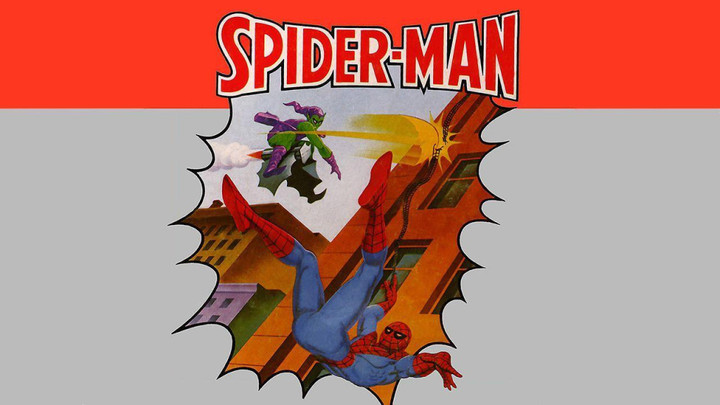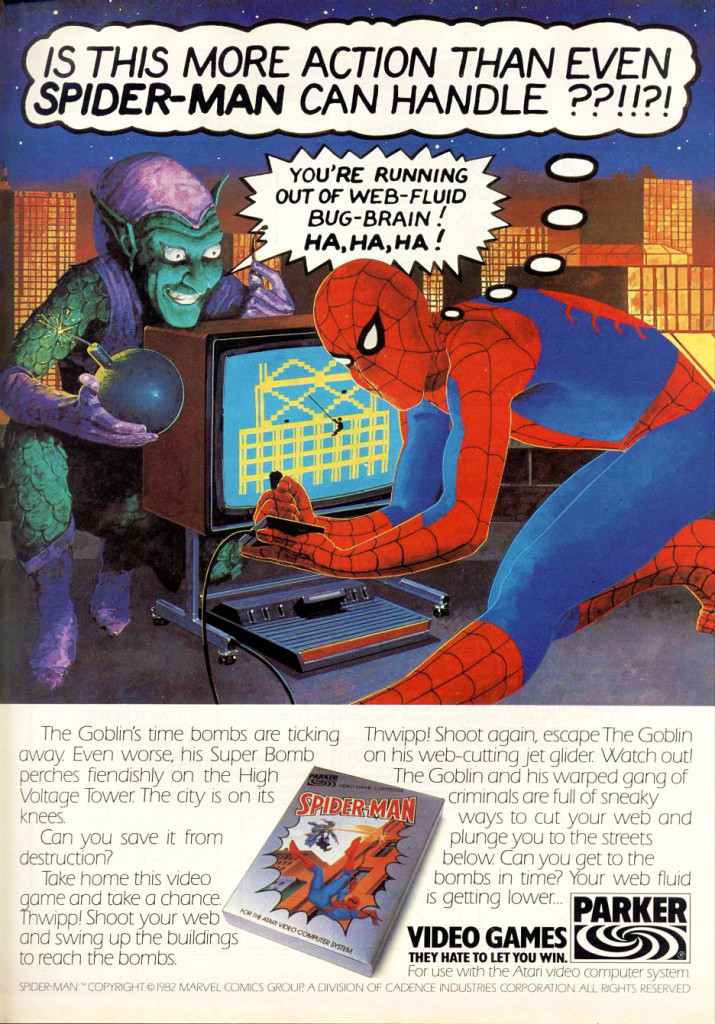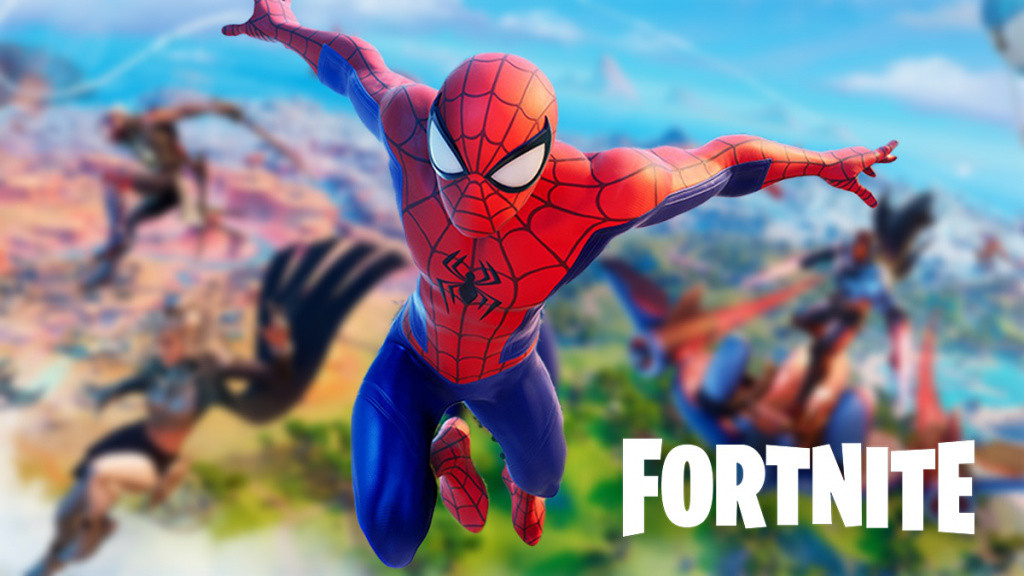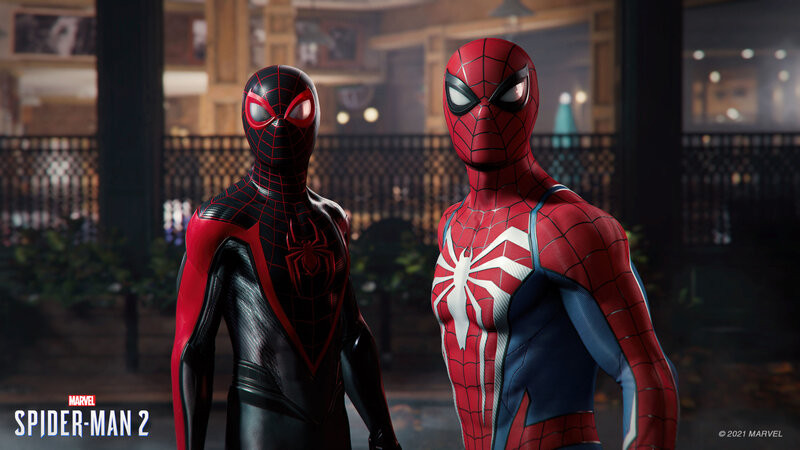Marvel Entertainment has become a behemoth in entertainment across multiple forms of media, spawning various television, film, and video game projects over the decades. In recent years, we've seen many spectacular Marvel video game releases, including Insomniac's Spider-Man, the LEGO Marvel series, and Marvel's Guardians of the Galaxy.
With several games currently in development focusing on various Marvel characters, the wait for the next superhero game ends with the release of Firaxis Games' Midnight Suns. But before we look at what lies ahead for Marvel Games, we glance at the past as we discuss the very first licensed game for Marvel, its trailblazing developer, the revolutionary development process, and how it laid the groundwork for future Marvel video games.
Marvel's First Licensed Video Game Featured A Friendly Neighborhood Hero
To better understand the rich history of Marvel video games, we have to take you back to the early 1980s when the market had begun to flourish. A year before the massive Video Game Crash of 1983, American gaming company Atari launched the first Marvel video game for the Atari 2600 (commonly known as the Atari Video Computer System - VCS).
Spider-Man leaped from the neighborhood pages of Marvel Comics into a video game in 1982, becoming Marvel's first licensed video game title. Published by toy and game manufacturer Parker Brothers, this Spider-Man game also set yet another monumental milestone as it was a one-person project developed by Laura Nikolich.
As stated earlier, the game's release came before the catastrophic crash the following year; for Nikolich, it took her six months to conceptualize the game's gameplay mechanics, design, and coding. With how constraining the console's hardware specifications were, this aided Nikolich in making the game more streamlined, which made it possible for the turnaround of the game's development to be completed within a year.
For Nikolich, it proved to be a worthy venture as she developed mechanics, which were considered innovative at the time. These mechanics centered around Spidey's web-slinging abilities, which at first were a nightmare as the marketing team argued with Nikolich to utilize similar mechanics used for Star Wars: The Empire Strikes Back.
She ultimately got them to change their minds as the game used a Digital Differential Analyzer (DDA) algorithm. The game went on garner commercial success despite some criticisms aimed at the game's unoriginality and sharing similarities with another popular arcade game, Crazy Climbers.
Regardless, the game was groundbreaking for many reasons, as it gave Marvel its first successful video game release and was helmed by a female developer. This could primarily be due to the hilarious marketing campaign, which may have been responsible for driving the game's commercial sales.
The console's hardware limitations allowed Nikolich to implement simple gameplay elements and complex coding, making the game less clumsy. Lastly, Nikolich had complete creative control without much interference from Marvel, which, should they have, the game may have been presented differently upon release.
But who exactly is the pioneering developer behind the massive success of Marvel's first-ever video game release? But most importantly, how did her outstanding work on this Spider-Man video game influence more than hundreds of designers, engineers, and programmers, leading to the creation of successful gaming series and the formation of Marvel Games?
Laura Nikolich, The Trailblazing Mind Behind Marvel's First Game
Nikolich's background in Engineering Technology saw her working for various corporations far removed from the gaming industry. Starting at a nuclear power plant before working for Motorola to develop their telephonic paging systems, she gained first-hand experience in developing the necessary skills, which she later utilized during Spider-Man's development.
How she landed a position at Parker Brothers was pure luck as Nikolich relocated to Boston, Massachusetts, before landing the position as Group Leader at McCormack & Dodge, a financial software company. According to an interview with Atari Compendium, Nikolich revealed how her experiences at the firm became serendipitous to her venturing into games.
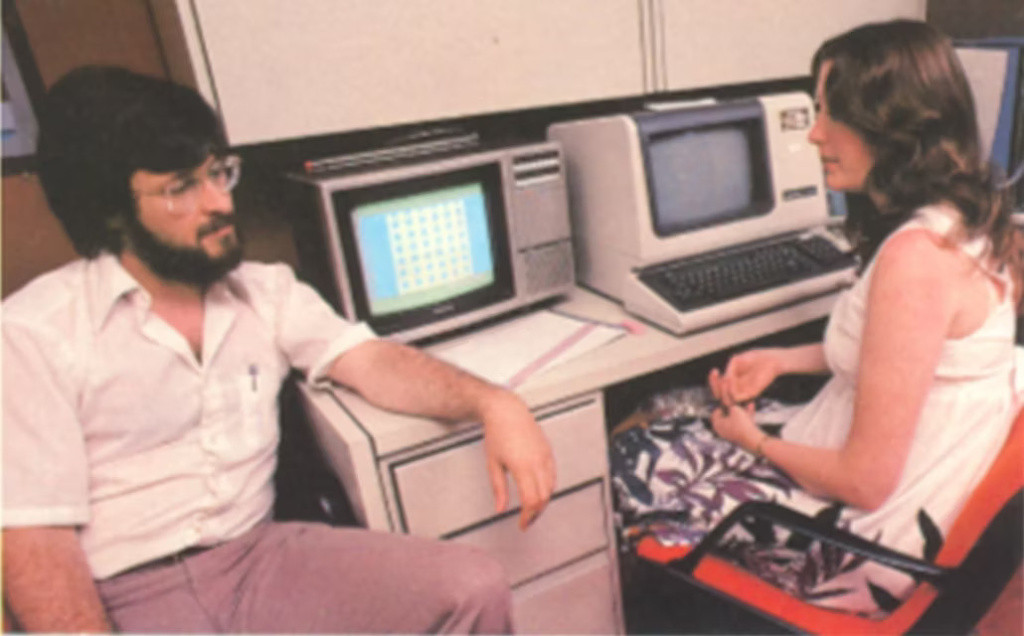
"I was at a local hotel to meet some clients and was a little early, so I was walking around the hotel. I stumbled across a job fair being held by Parker Brothers and wandered in. I knew of PB - who hasn't played Monopoly or Clue?" Nikolich explained.
"I also knew they were based on the North Shore, but that was about it. It was [at] the job fair where I really became aware of them. At first, they treated me like, "What are you doing here?" because here I am, all dressed up in my business attire! They were being polite but thought I was in the wrong place."
Following a conversation with team leader Jim McGinnis, she was hired as the company's programmer after an interview, and they offered her the position on the spot. She worked for Parker Brothers between 1981 and 1984 before being laid off.
She also fondly recalls the development process of 1982's Spider-Man game, counting back brainstorming sessions, concept ideas, and implementation of gaming systems. "The people were fantastic to work with. It was a very open, supportive, and creative environment. We had a free exchange of ideas and helped each other with our gaming challenges."
"We were all good friends working together. The chemistry was wonderful, and the management very supportive and accommodating, "Nikolich exclaimed.
After the 1983 Video Game Crash, Nintendo entered the market, which inevitably marked the downfall of Atari and the rest of the arcade gaming industry. "In the end, it was sad to go but also a relief. It was a magical time, but nothing lasts forever. I'm just glad I was a part of it."
How The Success Of Nikolich's Spider-Man Game Foreshadows Marvel Games' Bright Future
Nikolich's pioneering role in video games and her revolutionary involvement as a female engineer and sole developer behind Marvel's first licensed video game continues to send ripples across the industry. While female voices remain prominent in the gaming space in recent times, being represented in games themselves and game development, Nikolich is one of the figures to have made this possible.
Considering how innovative Nikolich's work was on Marvel's first licensed video game in the industry, its successes largely foreshadow what became a lucrative business avenue with their gaming division, Marvel Games. Her incredible backstory, passion, and dedication for this industry mirror what the founders, writers, and artists experienced during their formative years at Marvel Comics.
Breaking into a market with a relatively new idea, concept, or product was a daunting and frightening experience for these talented artists and creatives. Their drive, passion, and love for the respective mediums motivated them to become pioneers, turning niched industries and markets into multi-million dollar companies.
In the case of Marvel Comics, it spawned the formation of Marvel Entertainment in 1998, in which Marvel Comics became one of its focal divisions. Since then, it spawned several successful divisions, including Marvel New Media (digital and online media), Marvel Games (gaming), and, by far, the most recognizable division, Marvel Studios (film and television).
The Walt Disney Company would then acquire Marvel Entertainment in 2009 and, for Marvel Games, saw its assets merged with Disney Interactive before being revived. Since its revival, Marvel Games has been responsible for licensing its IPs to various third-party studios, including Capcom, Activision, Telltale Games, Insomniac Games, Square Enix, 2K Games, Niantic, and Skydance New Media.
Video game titles published by Marvel Games have remained separate from Marvel Studios' projects since the Marvel Cinematic Universe's inception in 2008, with a few exceptions of video game tie-in releases. However, all this couldn't have been possible if it weren't for Laura Nikolich's incredible work, the development team at Parker Brothers, and the first Marvel video game that paved the way for the eventual success of Marvel Games.

 No ads, our video library,
No ads, our video library,
